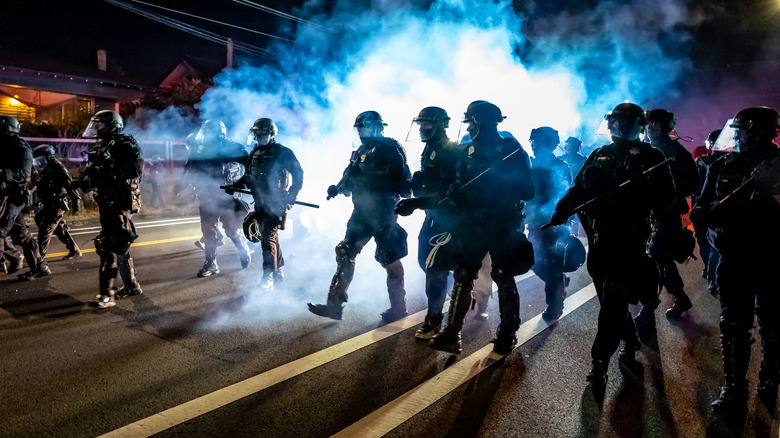The Origin Behind The Phrase 'Read The Riot Act'
At some point in your life, particularly if you've been given over to rambunctious behavior, you've probably been threatened with being read the riot act. Perhaps a parent or a teacher, jokingly or seriously, tried to intervene in a situation threatening to spiral out of control by threatening some sort of unspecified future punishment that would be invoked by metaphorically reading the figurative act. Likely no parent has ever read the riot act to anyone, but that doesn't detract from the punishment as a figure of speech, nor does the fact that threatening to read something to someone hardly counts as a threat at all.
As it turns out, the Riot Act was once a real thing. If it was read to you, your opportunities to right your behavior were quickly coming to an end.
The riot act was real, and reading it meant business
The Riot Act was a real law that was in place in the United Kingdom for centuries, according to Grammarist. Specifically, the 1714 law stated that if a crowd of 12 or more people was getting unruly, authorities could read the act to the crowd, after which they'd have 60 minutes to disperse, on pain of arrest. In other words, once you were read the riot act, your time was up. Further, it wasn't always necessary to wait the full 60 minutes, as authorities were allowed to make arrests sooner if the crowd continued to act up.
As it turns out, the law was written in such a way that the literal reading of the act, word-for-word, was an important part of invoking it. According to the question-and-answer column The Straight Dope, in 1830 an officer read the act to an unruly crowd but failed to conclude with the final phrase, "God save the king," and the crowd was able to beat their criminal charges because of it.

